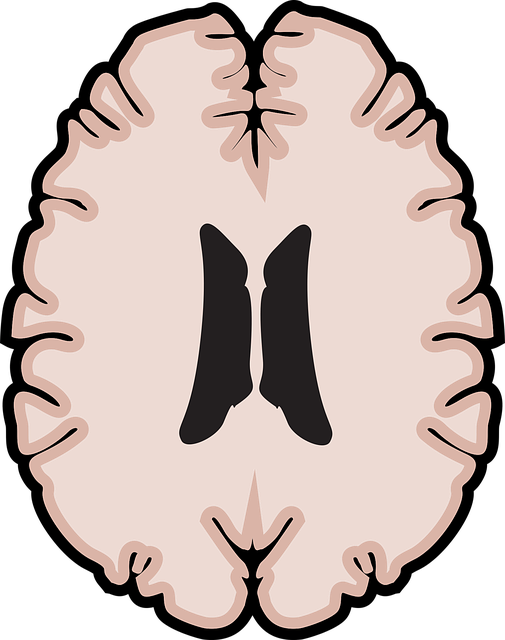Understanding Mental Health Data through diverse collection methods in Colorado Springs, including self-esteem therapy, involves critical data preparation with cultural sensitivity for accurate interpretation. This prepared data enables in-depth exploration of trends and patterns, guiding evidence-based decisions in mental health policy analysis and advocacy, such as effective stress reduction methods. By tracking self-esteem levels over time, therapists identify unique regional patterns, pinpoint triggers like economic pressures or social isolation, and tailor Crisis Intervention Guidance and Stress Management techniques for both individual clients and healthcare providers, ultimately creating a healthier community.
Mental health data analysis has become a powerful tool in understanding and improving patient outcomes, especially within specific communities. This article explores the intricacies of mental health data collection and preparation, focusing on the unique context of Colorado Springs. We present a case study analyzing self-esteem trends among therapy clients, highlighting the importance of interpretation for tailoring treatment strategies. By delving into these practices, we aim to enhance patient well-being in Colorado Springs self-esteem therapy.
- Understanding Mental Health Data: Collection and Preparation
- Analyzing Self-Esteem Trends in Colorado Springs Therapy Practices
- Interpreting Findings: Informing Treatment Strategies for Better Patient Outcomes
Understanding Mental Health Data: Collection and Preparation

Understanding Mental Health Data is a multifaceted process that forms the bedrock of effective analysis and interpretation. The journey begins with data collection, where various methods are employed to gather insights into individuals’ psychological well-being. In Colorado Springs, for instance, Self-Esteem Therapy has proven to be a valuable approach, facilitating open communication and encouraging clients to explore their thoughts and emotions. This therapy type often involves questionnaires, interviews, and observations, capturing data on symptoms, behaviors, and overall mental health status.
Preparation of this data is a critical step that ensures its quality and consistency. It involves organizing the collected information, cleaning it to remove any errors or inconsistencies, and transforming it into a structured format suitable for analysis. Cultural Sensitivity in Mental Healthcare Practice plays a vital role here, as therapists must be adept at interpreting data within diverse cultural contexts, ensuring accurate assessments and tailored interventions. Once prepared, the data is ready for in-depth exploration, which can reveal trends, patterns, and correlations, ultimately informing evidence-based decisions in mental health policy analysis and advocacy, including effective Stress Reduction Methods.
Analyzing Self-Esteem Trends in Colorado Springs Therapy Practices

In Colorado Springs, self-esteem therapy has emerged as a vital component of mental health care, providing insights into individuals’ psychological well-being. By analyzing trends in self-esteem levels over time, therapists and researchers can uncover valuable patterns specific to this region. The data collected from local therapy practices offers a unique perspective on the factors influencing self-perception among Colorado Springs residents. Through rigorous analysis, professionals can identify potential triggers for low self-esteem, such as economic pressures or social isolation, which are prevalent in urban areas like Colorado Springs.
This approach not only benefits individual clients but also contributes to the development of effective burnout prevention strategies for healthcare providers. By understanding the unique challenges faced by those seeking therapy in Colorado Springs, mental health professionals can adapt their practices and offer tailored Crisis Intervention Guidance and Stress Management techniques. This proactive approach ensures that both patients and practitioners can navigate the complex landscape of self-esteem issues, ultimately fostering a healthier and more supportive environment within the community.
Interpreting Findings: Informing Treatment Strategies for Better Patient Outcomes

Interpreting data from mental health analyses is a pivotal step in tailoring effective treatment strategies for patients. By delving into the insights gained from these findings, therapists and healthcare professionals can make informed decisions that cater to individual needs. This process involves identifying patterns, trends, and correlations within the collected data, which may include self-reported surveys, clinical assessments, and behavioral observations. For instance, in Colorado Springs Self-Esteem Therapy, analyzing patient feedback through structured questionnaires can reveal common challenges related to low self-worth and social anxiety.
Understanding these patterns allows for the design of targeted interventions. Mental health professionals can then develop personalized therapy plans that incorporate evidence-based practices. Moreover, integrating insights from data analysis into mental health education programs and public awareness campaigns can foster a more comprehensive understanding of common mental health issues, promoting early intervention and better overall emotional healing processes.
Mental health data analysis and interpretation are powerful tools that can significantly enhance therapy practices, especially in focused regions like Colorado Springs. By understanding self-esteem trends within local therapy practices, professionals can tailor treatment strategies to better support patients’ mental well-being. This insightful approach not only improves patient outcomes but also contributes to the overall advancement of mental health care in Colorado Springs self-esteem therapy settings.













